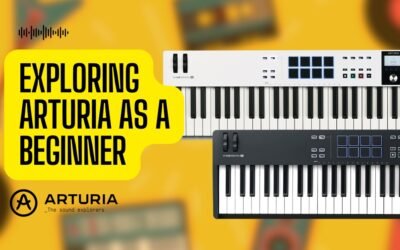How to Market Your Music and Performances Online

Promoting your music and performances online is crucial for success in today’s digital landscape. Whether you’re a musician, DJ, or performer, having a strong online presence can help you reach new audiences, cultivate a loyal fan base, and secure more opportunities. This guide will outline the most effective online strategies for marketing your music and performances.
1. Build a Professional Website
Your website is your digital home where fans, promoters, and industry professionals can find your work.
- Essential Elements: Include a bio, music samples, videos of performances, tour dates, and contact information. A well-structured website enhances credibility and makes it easier for industry professionals to reach out. Keeping an updated press kit and electronic press release (EPR) ensures promoters and media outlets have everything they need. Adding a blog to your website can drive more traffic and keep fans engaged with your latest news.
- Example: Billie Eilish’s official website (https://www.billieeilish.com/) features a sleek design, music samples, and merchandise integration.
- Example: Hans Zimmer’s site (https://www.hanszimmerlive.com/) effectively showcases upcoming performances and project history.

- SEO Optimization: Use relevant keywords to make your site more discoverable on search engines. Optimize images and use alt-text to improve search ranking. Incorporate schema markup for better visibility in search results.
- Example: Moz’s SEO guide (https://moz.com/learn/seo) provides insights on optimizing your website for search engines.
- Example: Neil Patel’s blog (https://neilpatel.com/blog/) offers advanced SEO techniques for website growth.
- Integration: Link your social media, streaming platforms, and merchandise store for easy access. This allows visitors to follow your work across multiple platforms effortlessly. Implementing an email subscription option can help you maintain direct engagement with your audience. Ensuring your website is mobile-friendly enhances user experience.
- Example: Taylor Swift’s website (https://www.taylorswift.com/) integrates her social media, music, and e-commerce seamlessly.
- Example: Bandzoogle (https://bandzoogle.com/) provides musician-friendly website-building services with seamless integrations.
2. Utilize Social Media Effectively
Social media platforms are powerful tools for marketing your music. Here’s how to maximize them:
- Instagram & TikTok: Share clips of performances, behind-the-scenes content, and fan interactions. Utilizing Instagram Reels and TikTok trends can increase discoverability. Engaging in trending challenges or creating your hashtag can boost engagement. Posting consistently and leveraging analytics ensures you optimize your content strategy.
- Example: The Weeknd’s TikTok (https://www.tiktok.com/@theweeknd) showcases music snippets and interactive content.
- Example: Dua Lipa’s Instagram (https://www.instagram.com/dualipa/) effectively uses reels and stories to connect with fans.
- YouTube: Upload music videos, live performances, and tutorials to engage your audience. Creating playlists of your music and featuring collaborations can keep viewers engaged longer. Adding subtitles and metadata optimization helps improve video rankings. Encouraging user engagement through likes, comments, and shares increases visibility.
- Example: Post Malone’s YouTube Channel (https://www.youtube.com/c/postmalone) features high-quality music videos and behind-the-scenes content.
- Example: NPR Music’s Tiny Desk Concerts (https://www.youtube.com/c/nprmusic) showcase live performances from various artists, increasing exposure.
- Facebook & Twitter: Promote upcoming events, release updates, and engage with your audience through posts and discussions. Hosting Facebook Live Q&As can strengthen fan relationships. Posting interactive polls and encouraging discussions builds community engagement. Retweeting and sharing industry-related content can expand your reach.
- Example: Ed Sheeran’s Facebook (https://www.facebook.com/EdSheeranMusic) keeps fans updated on music releases and tours.
- Example: John Mayer’s Twitter (https://twitter.com/JohnMayer) engages fans with witty and relatable posts.
3. Leverage Streaming Platforms
Distribute your music on popular streaming services like Spotify, Apple Music, and SoundCloud.
- Create Playlists: Feature your tracks alongside similar artists to increase discoverability. Submitting music to curated playlists can enhance exposure. Consistently updating playlists keeps engagement levels high. Engaging with listeners through playlist descriptions and social shares fosters a deeper connection.
- Example: Spotify’s Fresh Finds Playlist (https://open.spotify.com/playlist/37i9dQZF1DWX7FV7UgcFfX) highlights emerging artists.
- Example: SoundCloud’s New & Hot Chart (https://soundcloud.com/charts/top) features trending music across genres.
- Collaborate with Influencers & playlist curators: Reach out to playlist curators and influencers to feature your music. Personalized outreach emails can improve your chances of getting featured. Offering incentives such as shoutouts or collaborations can be beneficial. Engaging with influencers’ content increases visibility.
- Example: SubmitHub (https://www.submithub.com/) allows artists to submit music to playlist curators and influencers.
- Example: Playlist Push (https://www.playlistpush.com/) helps independent artists get featured on curated playlists.
- Encourage User Engagement: Ask fans to share, like, and save your tracks to boost visibility. Engaging fans with behind-the-scenes content about your music creation process makes them feel more connected. Running giveaways for fans who share your tracks can increase reach. Hosting live listening sessions on platforms like Spotify or YouTube encourages real-time engagement.
- Example: Hozier’s Spotify (https://open.spotify.com/artist/2FXC3k01G6Gw61bmprjgqS) actively engages fans through new releases.
- Example: BTS’s SoundCloud (https://soundcloud.com/bangtan) allows fans to explore exclusive unreleased content.
Conclusion
Marketing your music and performances online requires a strategic approach that combines social media, SEO, streaming platforms, and audience engagement. By consistently implementing these techniques, you can grow your fanbase, attract industry opportunities, and achieve long-term success. Start today and watch your music reach new heights!
Do you need a tailored marketing plan for your music? Let’s connect at JonathanMartin.com.ph for personalized guidance!

Related Posts:
Why Graphic Design Is Essential in the Corporate World In a fast-paced business environment, graphic design is vital for shaping...
Exploring Arturia as a Beginner
Arturia offers some of the best MIDI controllers for beginners, but is it the right choice for you? In this guide, I share my hands-on experience with the KeyLab Essential 88 Mk3, MiniLab Mk3, and MicroFreak, covering their features, pros, cons, and pricing in the Philippines. Find out if Arturia fits your music production needs!
How to Create a Powerful Personal Brand as a Musician
Building a strong personal brand as a musician is essential for standing out in the industry. Learn how to define your artistic identity, engage your audience, and monetize your brand with expert strategies. Start shaping your unique music journey today!



0 Comments